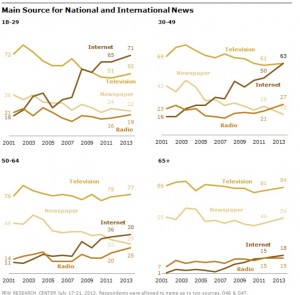Dear Commons Community,
The Chronicle of Higher Education is reporting today on the second of a series of papers challenging optimistic assumptions about massive open online courses. As reported in The Chronicle:
“The coalition of faculty-advocacy organizations asserts that online instruction “isn’t saving money—and may actually be costing students and colleges more,” but that “snappy slogans, massive amounts of corporate money, and a great deal of wishful thinking have created a bandwagon mentality that is hard to resist.”
The paper, “The ‘Promises’ of Online Higher Education: Reducing Costs,” was released by the Campaign for the Future of Higher Education, whose backers include a number of faculty unions. Drawing on news articles and public-opinion surveys, it says that while the business model supporting MOOCs is “still a work in progress,” the trend is to offer courses free but charge for “a degree or a certificate or anything from the MOOC that carries real value.”
Merely having taken one of the courses, the paper says, is “virtually valueless in the marketplace.”
“The bottom line for students? The push for more online courses has not made higher education cheaper for them. The promise has always been that it will—but that day always seems to be in the future,” the paper says.
MOOCs may also cost colleges money, the paper says, citing an agreement between Udacity and the Georgia Institute of Technology to offer an online master’s degree in computer science.
“Udacity gets the intellectual content for a master’s program of 20 courses at an upfront cost of $400,000,” the paper says. “It borrows Georgia Tech’s reputation as its own, at a huge discount (no training of graduate students, no support for labs, no decades of accumulated know-how through which Georgia Tech earned its reputation). It acquires these courses for a proprietary platform: Georgia Tech cannot offer these OMS CS courses, created by its own faculty, to a competing distributor.”
The paper continues: “Udacity expects Georgia Tech faculty members to maintain and update course material, and can use their latest version. While requiring that Georgia Tech not compete with it, it can take Georgia Tech-created courses and offer them to tens or hundreds of thousands of nonregistered students—and sell a program certificate for those courses.”
The full paper goes into more detail and is well worth a read.
Tony



